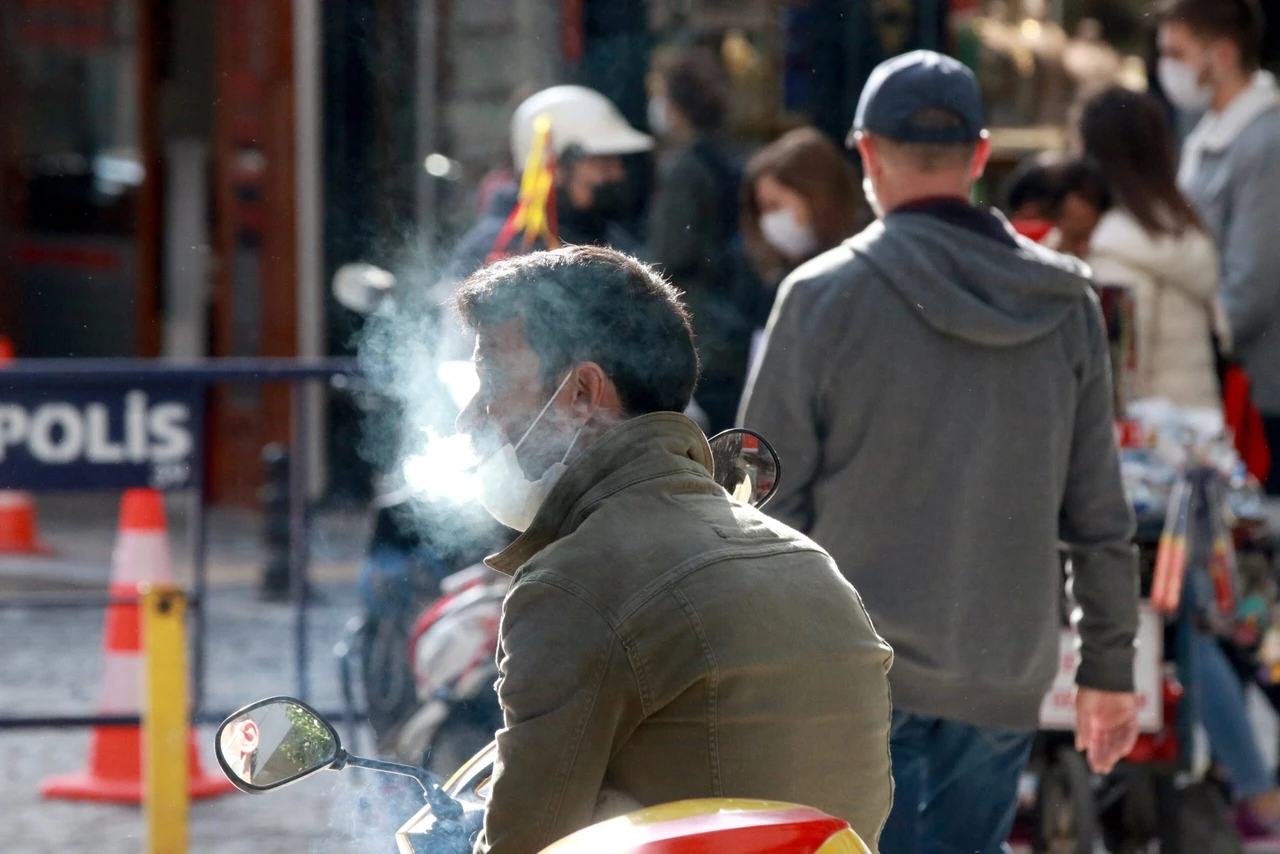Türkiye expresses interest in Future Combat Air System: French Senate Report
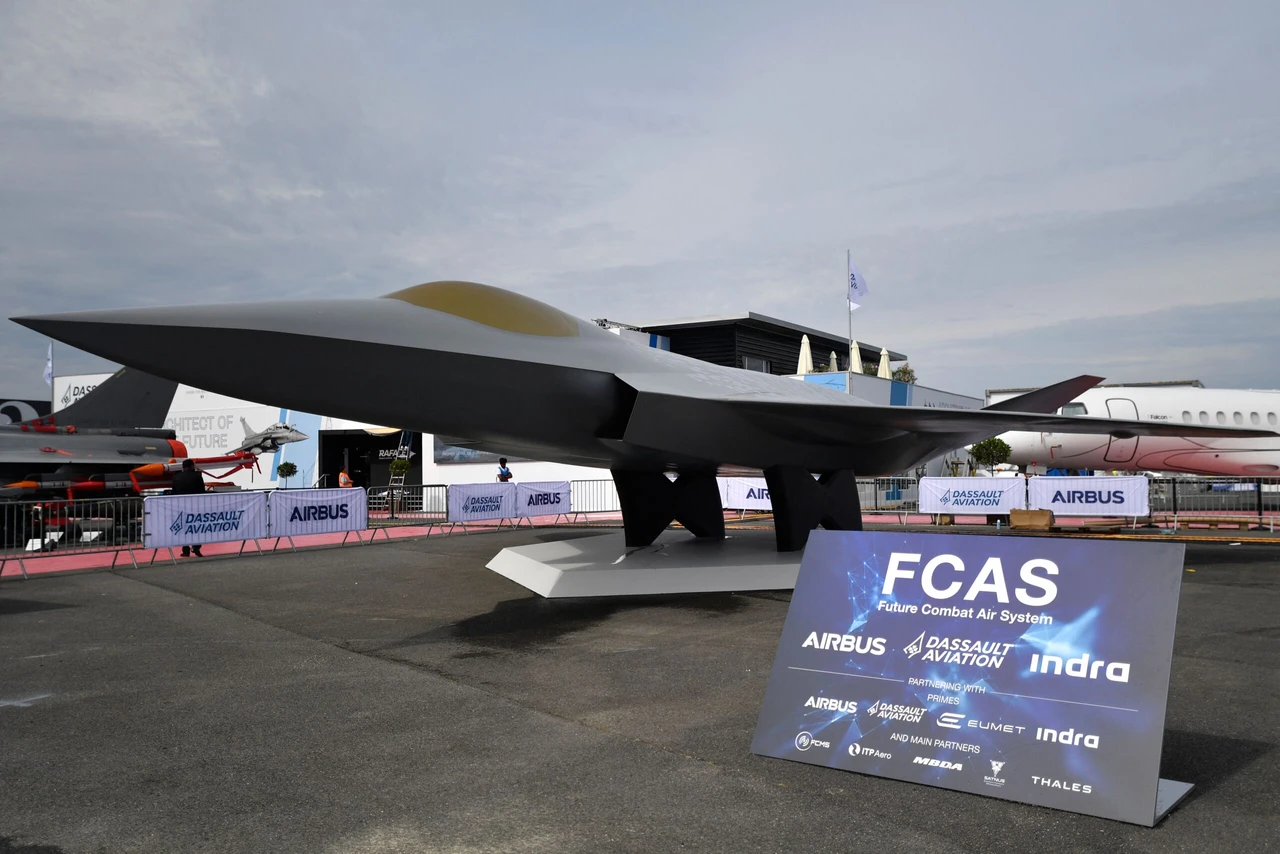 Mock-up of the European New Generation Fighter (NGF) for the Future Combat Air System (FCAS) under development by Dassault Aviation, Airbus and Indra Sistemas during the International Paris Air Show at the ParisLe Bourget Airport. (AFP Photo)
Mock-up of the European New Generation Fighter (NGF) for the Future Combat Air System (FCAS) under development by Dassault Aviation, Airbus and Indra Sistemas during the International Paris Air Show at the ParisLe Bourget Airport. (AFP Photo)
A recent report by the French Senate’s Foreign Affairs and Defense Committee indicates that Türkiye has expressed interest in contributing to the Future Combat Air System (SCAF/FCAS), a next-generation fighter jet program led by France, Germany and Spain.
This development comes as geopolitical tensions between Türkiye and France, potentially opening the door for renewed relations under potential defense cooperation.
However, Türkiye’s interest in the SCAF program arises against the backdrop of the competing Tempest project, a U.K.-led fighter jet initiative involving Italy, Sweden, and Japan, with Türkiye previously being approached for financial contributions.
The existence of these two rival European programs raises questions about the future of defense collaboration on the continent.
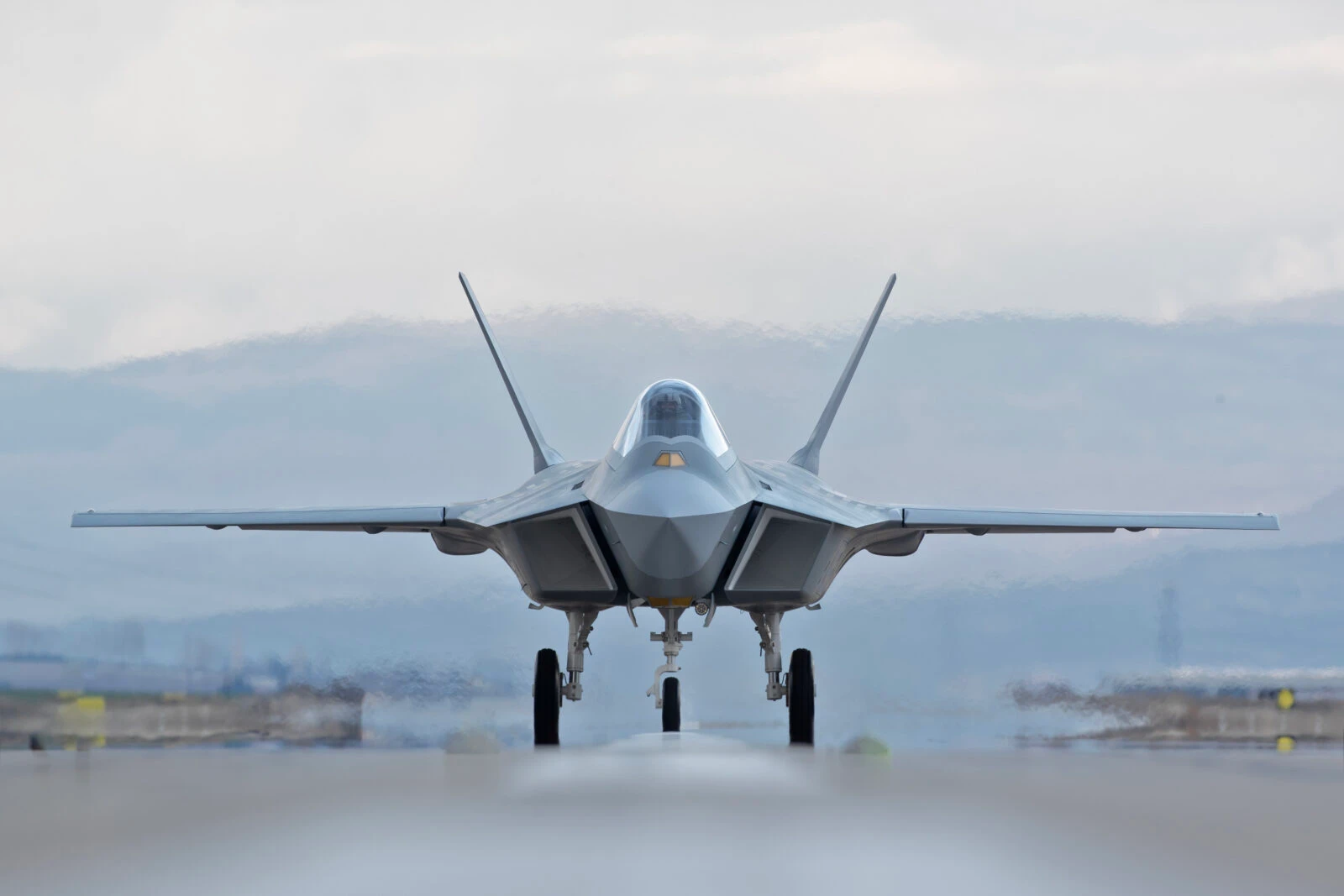
Türkiye’s renewed engagement in European defense projects
According to the Senate report, Turkish defense officials, including representatives from the Presidency of Defense Industries (SSB), have signaled interest in developing fifth- and sixth-generation fighter jets and suggested that Türkiye could contribute to the SCAF program.
Officials pointed to Türkiye’s past involvement in European defense projects, such as the Cougar helicopter and A400M transport aircraft, as precedents for renewed cooperation.
Turkish General Ilkay Altindag, director-general for security at Türkiye’s Ministry of Defense, emphasized the country’s existing defense partnerships with Spain on helicopter carriers and Germany on submarines.
He also advocated for renewed dialogue with France’s Directorate General of Armament (DGA) to assess potential industrial collaboration.
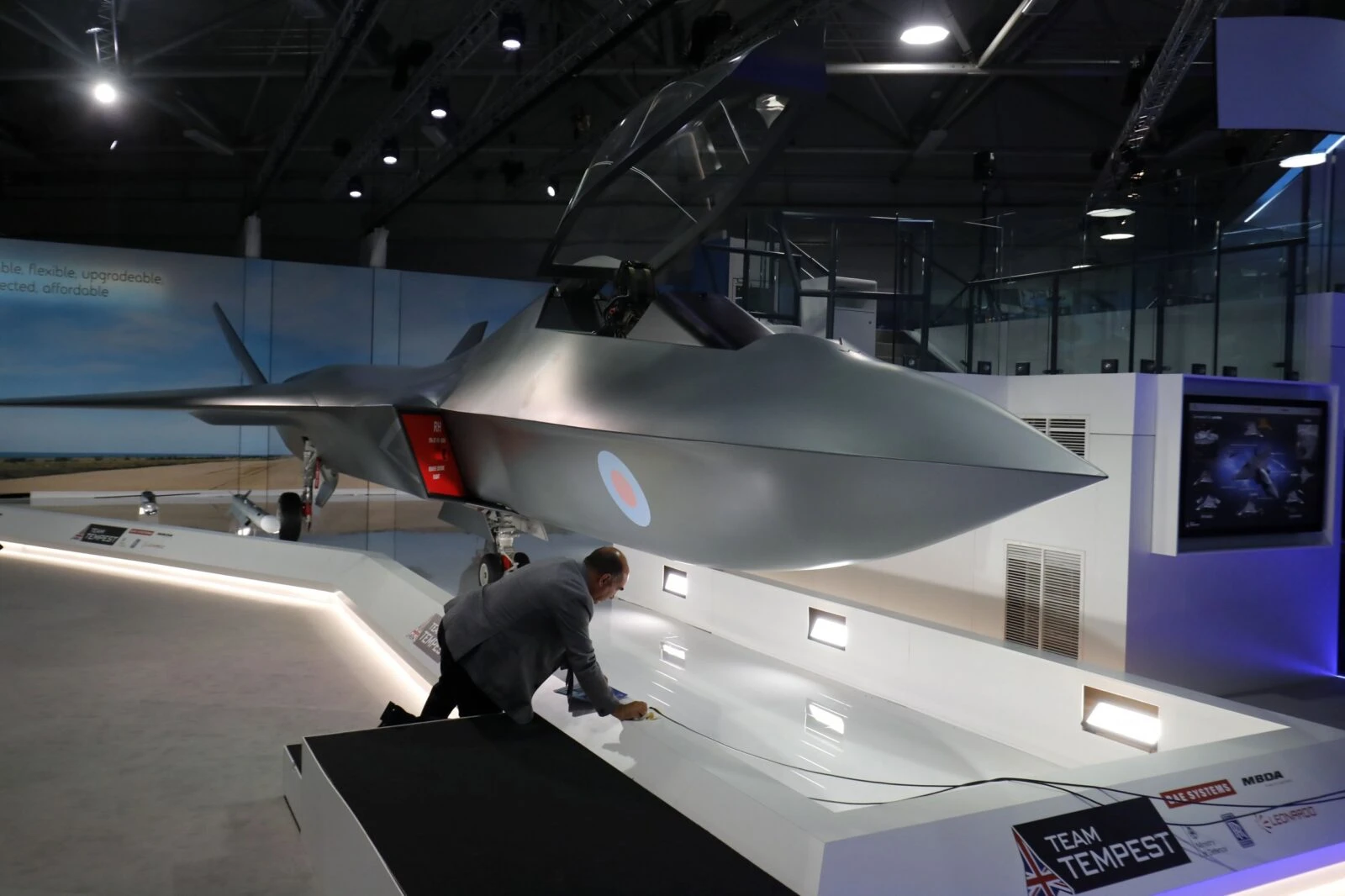
Competing European fighter jet programs: SCAF vs Tempest
Türkiye’s interest in SCAF comes as European defense faces a split between two major next-generation fighter jet programs.
Originally, France and the U.K. launched a joint FCAS project in 2014 to develop an advanced combat drone, with Dassault Aviation and BAE Systems leading efforts. However, Brexit and shifting defense priorities led to the U.K.’s decision in 2018 to pursue its own fighter jet program, Tempest, rather than continue Franco-British cooperation.
The Tempest program, announced by the U.K. in July 2018, seeks to develop a successor to the Eurofighter Typhoon and aims for an initial operational capability by 2035—five years ahead of the projected timeline for SCAF. The U.K. has partnered with Italy and Sweden, and later included Japan, forming the Global Combat Air Programme (GCAP).
Additionally, the U.K. has engaged with Saudi Arabia and Türkiye, reportedly seeking financial contributions rather than full industrial cooperation.
While both SCAF and Tempest share the goal of producing next-generation fighter jets, their approaches differ:
- SCAF is primarily a European initiative, led by France, Germany, and Spain, with strong emphasis on EU-based industrial cooperation.
- Tempest is a more international project, seeking non-European partners and leveraging the U.K.’s ties with the United States, including potential integration with the Boeing Loyal Wingman drone program.
According to defense analysts, a merger or collaboration between the two programs appears increasingly unlikely, particularly if Tempest further expands its partnerships with Türkiye, Saudi Arabia or Japan.
The fragmentation of Europe’s fighter jet development could limit export markets and increase costs, raising concerns about the sustainability of two parallel programs.
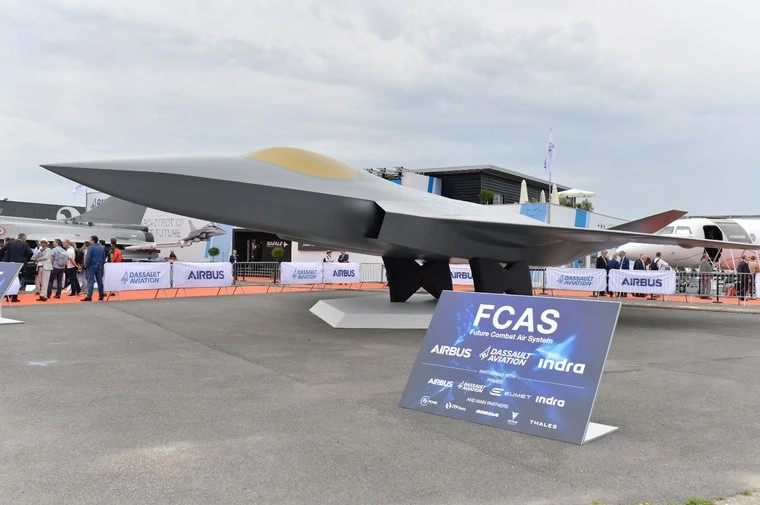
France-Türkiye relations: A path to normalization?
France and Türkiye have faced diplomatic and military tensions in recent years, particularly over conflicts in Libya, Syria, the Eastern Mediterranean, and the Caucasus.
The 2020 incident involving the French frigate FS Courbet and a Turkish naval vessel further strained relations, while France’s military support for Greece reinforced the divide.
However, there are signs of thawing relations. In November 2024, the French Navy La Fayette-class frigate FS Courbet (F712) made a port call in Istanbul, suggesting a possible reset in bilateral defense ties.
Meanwhile, reports of a potential French sale of Meteor air-to-air missiles to Türkiye prompted Greece to seek clarifications, fearing it could shift the regional air power balance. Ankara will be purchasing Meteor missiles under its Eurofighter Typhoon acquisition.
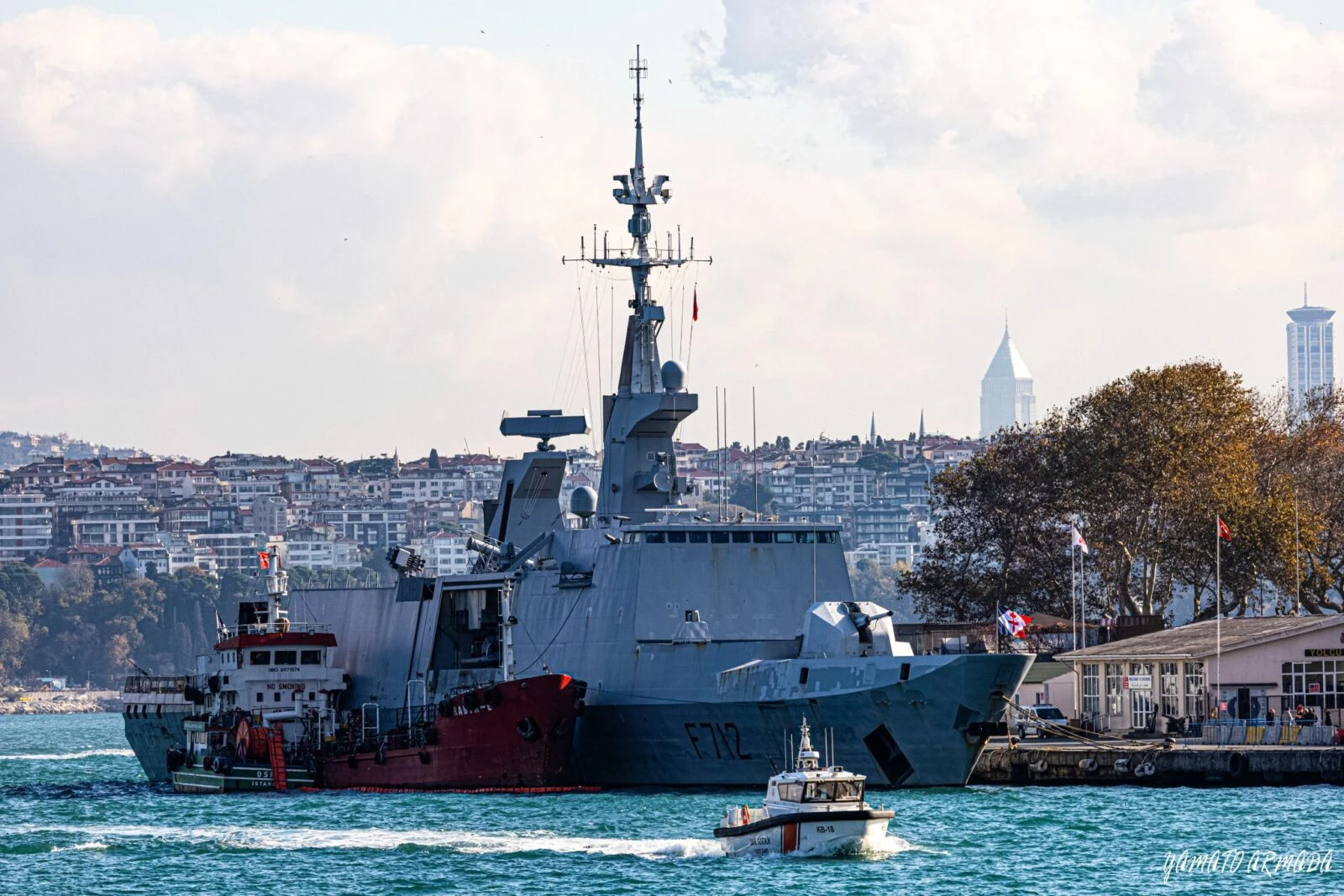
Türkiye’s fighter jet strategy: Balancing between SCAF and Tempest?
As Türkiye advances its indigenous KAAN fighter jet program, it remains unclear whether it will prioritize deeper collaboration with Europe via SCAF or further engage with the U.K.-led Tempest initiative or these are all just rumors and Ankara will decide to move on with its own indigenous fighter jet programs, time will tell.
Given that Türkiye was not invited to join Tempest as a full partner, its interest in SCAF may be a strategic effort to secure alternative cooperation opportunities in the European aerospace industry.
Despite Türkiye’s outreach, SCAF leadership has not publicly indicated any plans to expand membership beyond France, Germany, and Spain, though Belgium was recently admitted as an observer.
Türkiye is very close to gaining a new dimension in the field of defense with Europe. Baykar’s recent purchase of Piaggio Aerospace, Otokar’s armored vehicle sales and ship sales to Portugal are clear signs of Ankara’s great potential to contribute to Europe’s defense.

